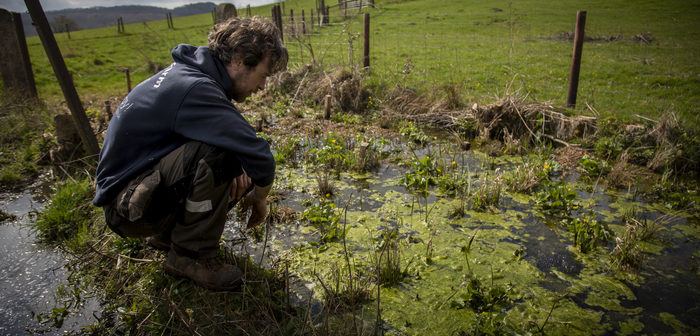Farmers, landowners and organisations in the Midlands have the opportunity to pitch for a share of £100,000 to provide support for projects that improve biodiversity while enhancing British farmland.
Zara Turtle, Severn Trent catchment partnership coordinator, explains that the Severn Trent Boost for Biodiversity scheme, gives applicants the freedom to come up with their own innovative ideas to improve the region’s biodiversity.
“The scheme, previously known as Cash for Catchments, now moving into its second year, aims to bring together members of the community in collaboration with Severn Trent to implement several projects that improve habitats for wildlife and provide environmental, economic and social benefits,” she says.
Get involved
Between 5 April and 31 May 2019, applicants will be invited to submit project proposals that will have a positive impact on the environment by improving biodiversity.
“Last year’s successful submissions included projects that focused on native species conservation, river restoration, wetland improvements and natural flood management, to name a few,” says Zara.
The highest scoring applicants will receive funds to support their projects. Following this they will have the opportunity to increase their funding by pitching their proposal to a ‘Dragons’ Den’ style panel, at Severn Trent’s head office in Coventry.”
Zara hopes that the scheme will help to make significant improvements within the region and raise awareness of the multi-directional relationship that environmental biodiversity has with water quality.
Wetland and drainage project at Treflach Farm
One of last year’s successful applicants was farmer, Ian Steele, who’s enterprise works towards sustainable farming practices to produce wholesome food.
Ian explains the fund how helped to fund a wetland and drainage improvement project at Trelfach Farm in Shropshire.
“We were awarded £29,425 to tackle a number of issues relating to the local watercourse, such as poaching, nutrient leaching, slit build-up and lack of water for grazing livestock.
“We put the funding towards various solutions. The work included alterations to the cattle shed drainage to prevent nutrient leaching, installing a more efficient septic tank system and restoring a pool to enhance biodiversity and improve flood-risk management.”
Ian adds that he’s extremely grateful for the financial support from Severn Trent, without which, many of the works would not have been possible.




